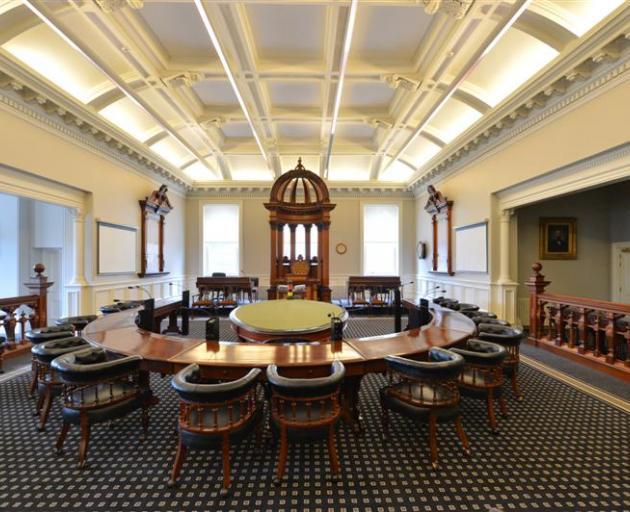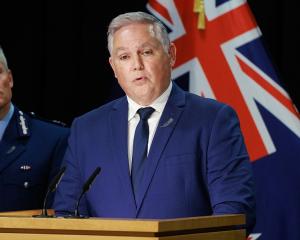
Not all, however. Others late last evening were still vigorously chomping on their fingernails, waiting for the next update, following news those results might well land before the last hour or two of Sunday ticked away.
In Dunedin, where incumbent Jules Radich lost the mayoralty convincingly on Saturday, Sophie Barker and Andrew Simms remained on tenterhooks as late as 9pm as to which of them would be confirmed as mayor.
Due to the Dunedin City Council’s Single Transferable Vote system, Ms Barker and Mr Simms were still eagerly waiting for more than the provisional results which came through shortly after 4pm on Saturday. Those showed that Ms Barker had 12,782 votes to be mayor and Mr Simms had 12,677, a razor-thin majority of just 105 votes.
The complication was there were still more than 9000 votes to count at that stage, meaning the outcome was undecided through most of yesterday.
In spite of that, Ms Barker popped the cork on the Lindauer on Saturday afternoon, saying if it went her way it would be exciting to be the second woman mayor of Dunedin, after Sukhi Turner. However, she admitted the result could still swing her rival’s way.
Mr Simms was quick to congratulate Ms Barker, saying he thought late votes would favour her and the race would not change.
Given the lack of results either way, it seemed a little strange that both appeared to be counting chickens before they hatched.
Mr Simms’ election as a city councillor has been endorsed, as has that of Mr Radich, which will ensure his experience is not lost to Dunedin, despite a series of blunders during his time as mayor, one of which resulted in Ms Barker stepping down as his deputy.
Elsewhere across Otago and Southland results came through promptly on Saturday and showed voters around the region were keen to change the faces at their council tables.
The new Queenstown Lakes District mayor, John Glover, defeated Glyn Lewers by 814 votes in the initial count on Saturday. He said he saw it as a clear message from voters that "if you don’t listen to the community, you do so at your peril".

In Invercargill, the city’s new mayor, Tom Campbell, warned of the immense cost pressures councils are under and said it would be challenging to keep rates low.
Clutha District is another with a first-time mayor. One-term councillor Jock Martin said the district had been kind to him throughout the years and he had "plenty of gas" in the tank to give back to it.
The Waitaki District Council’s new leader is former deputy mayor and three-time councillor Melanie Tavendale, who spoke of building good relationships and setting a positive direction for the district.
Central Otago Mayor Tamah Alley had a decisive win, with 85% of ballots counted giving her 5130 votes, ahead of Charlie Sanders with 1886. She unexpectedly took on the mayoralty a year ago, when Tim Cadogan resigned.
Further south, in Gore, Ben Bell has been returned for his second term.
Using STV for the first time, the Otago Regional Council appears to have moved to the right, with a successful campaign run by incumbent councillors Michael Laws and Gary Kelliher, and Dunedin’s Hilary Calvert, representing the fiscally conservative Vision Otago team.
The Dunedin City Council faces major changes after the election. Based on Saturday’s provisional results, there are likely to be seven new councillors — Mr Simms, Mr Radich, John Chambers, Russell Lund, Doug Hall, Bruce Ranga and Benedict Ong.
Five members from the last council appear to be on the way out — Crs Bill Acklin, Kevin Gilbert, Carmen Houlahan, Jim O’Malley and Andrew Whiley. The sixth who is not returning is the long-serving David Benson-Pope, who has just retired.
After concerns at the lack of voter turnout at the end of last week, about 9400 people voted in the city on Saturday morning.
Could these not have been counted a bit faster?












